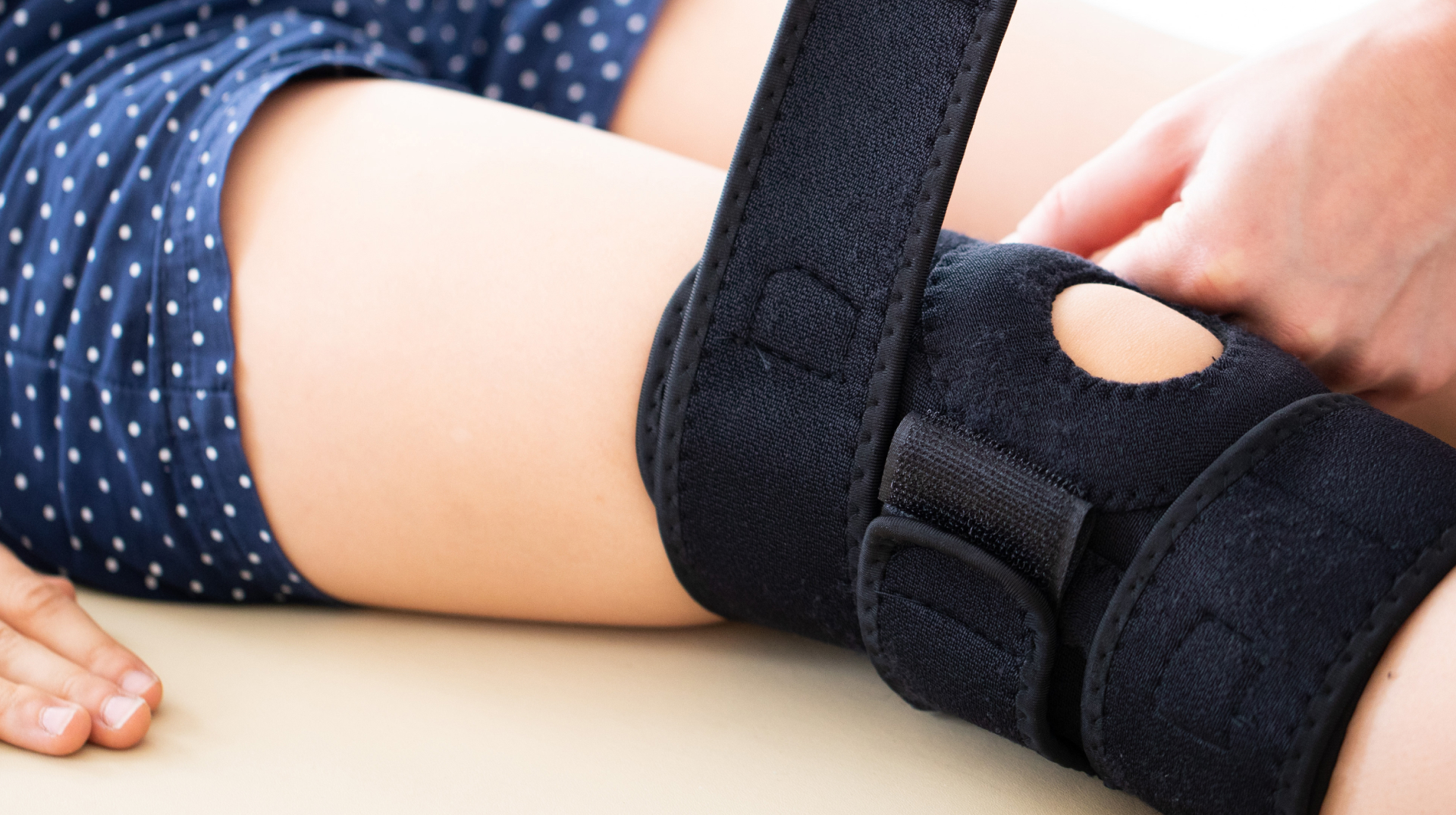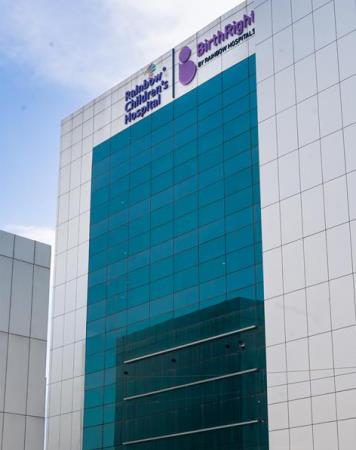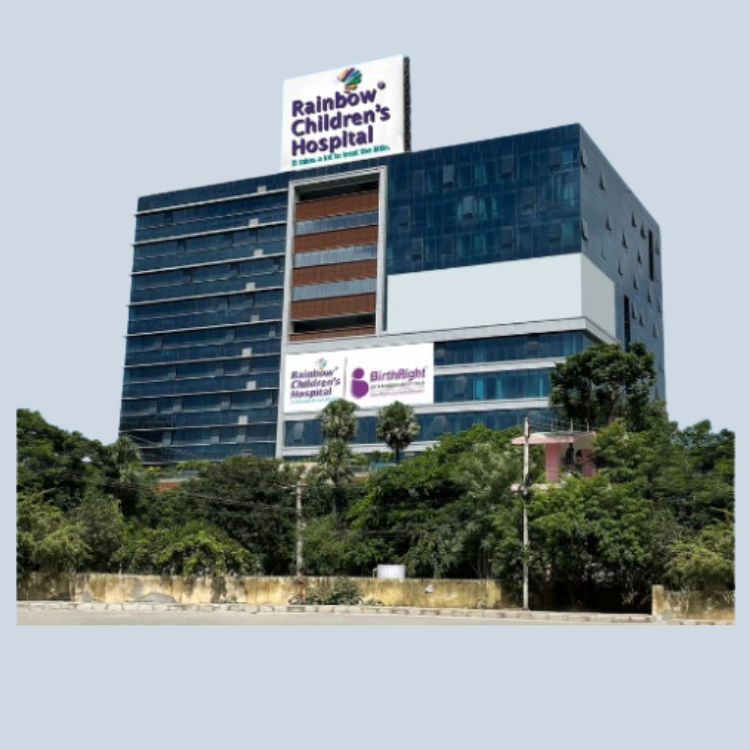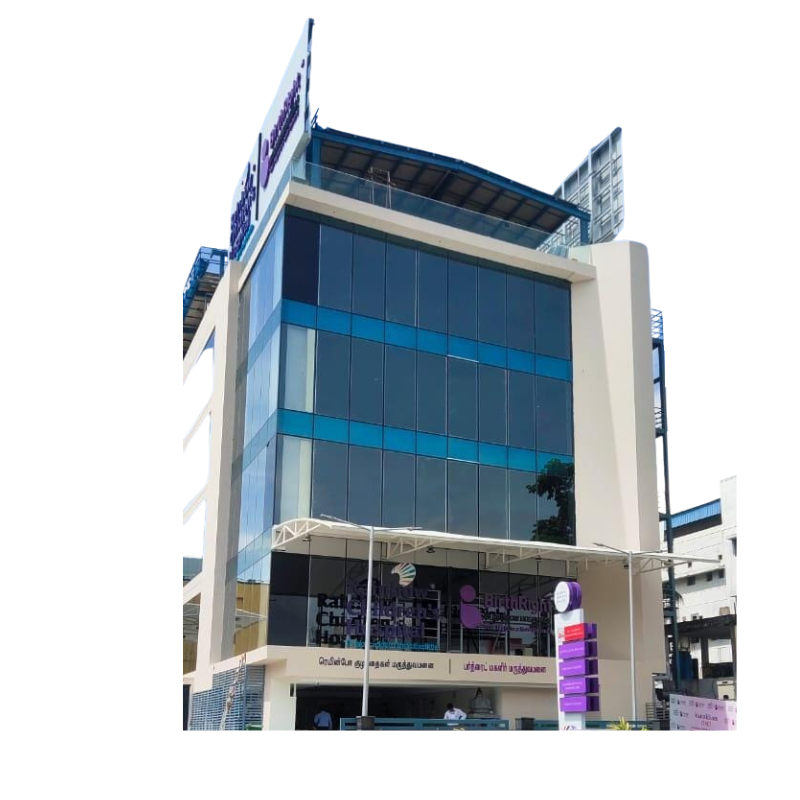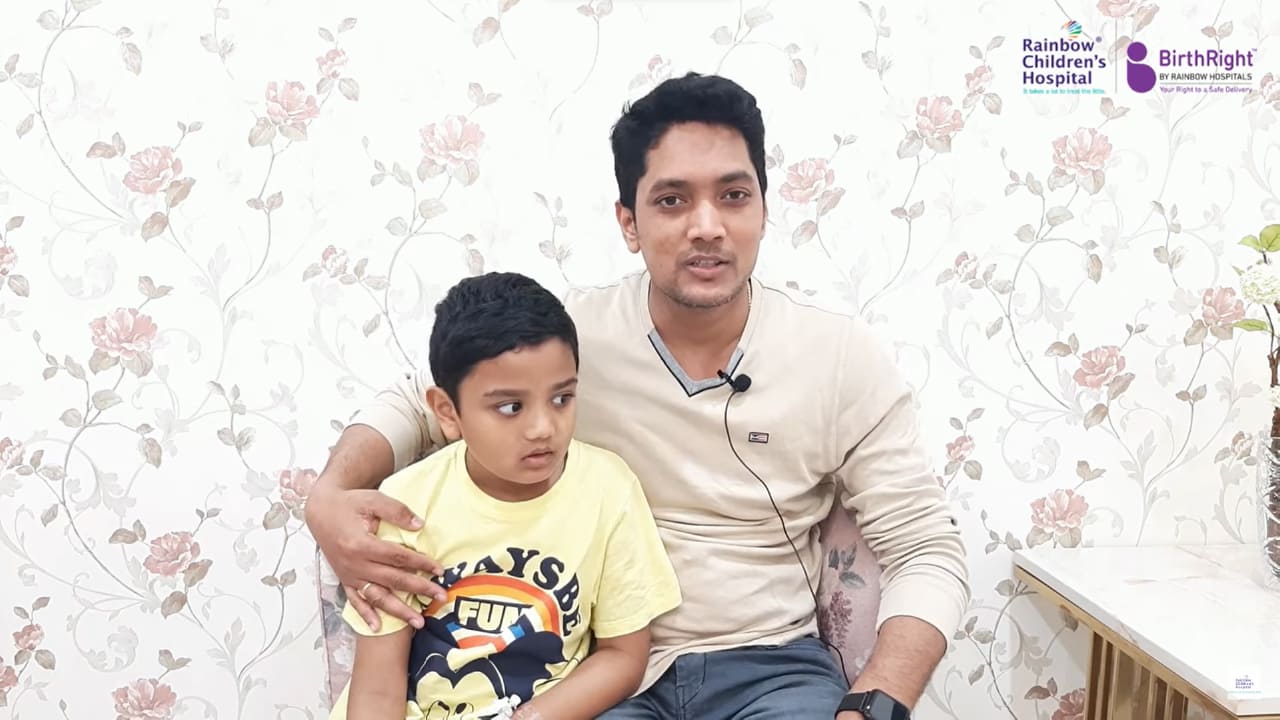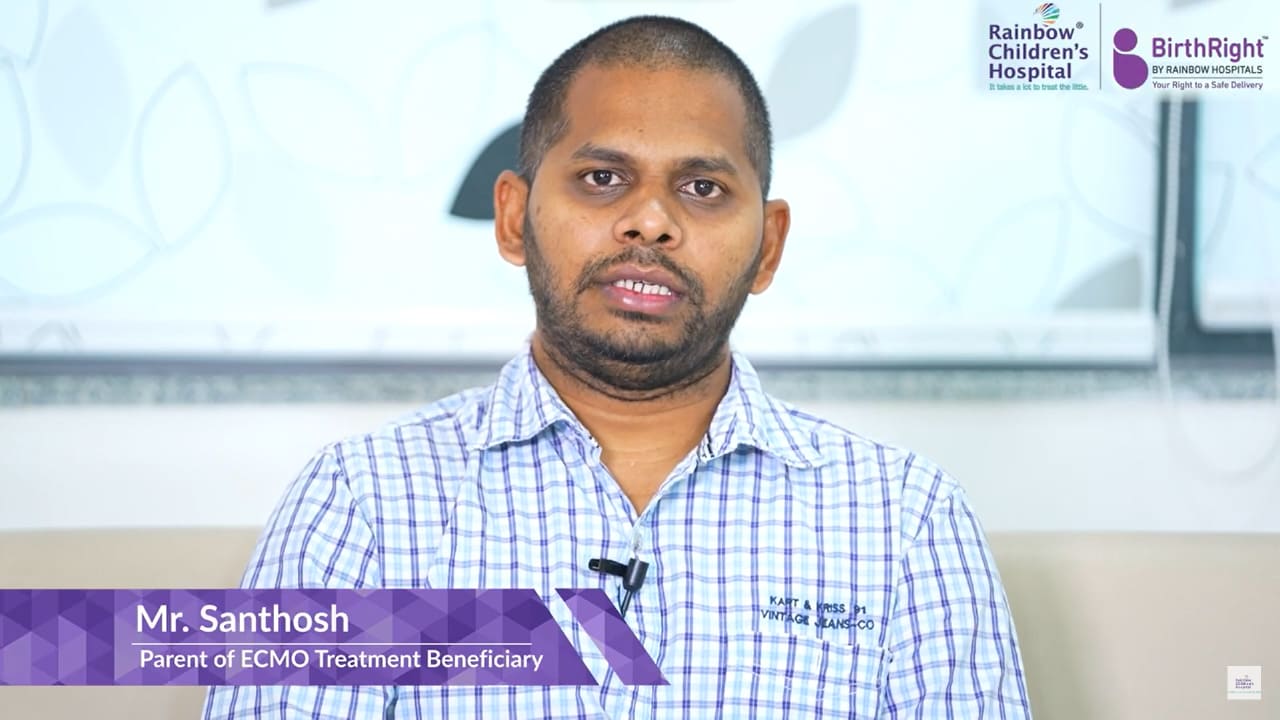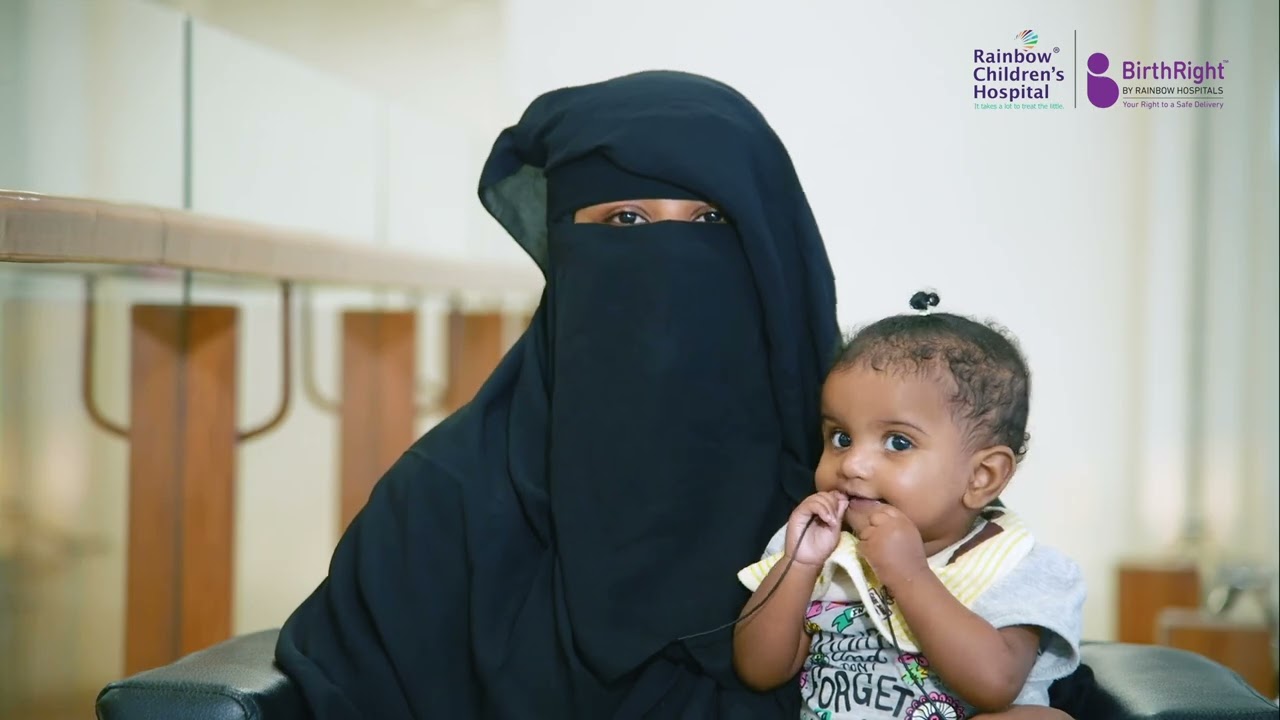Seamless support from diagnosis to post treatment care
Pediatric Rheumatology
Pediatric Rheumatology is a pediatric specialty focused on the precise diagnosis and treatment of autoimmune disorders that can affect children. These conditions encompass a range of ailments such as scleroderma, lupus, juvenile rheumatoid arthritis, chronic vasculitis, post-infectious arthritis, as well as inflammatory disorders affecting various organs, including the eyes and muscles.
Children experiencing issues like weakness, fatigue, reduced appetite, loss of previously acquired skills or functions, and persistent musculoskeletal pain can benefit significantly from the expertise of a Pediatric Rheumatologist. The right guidance from these specialists can make a substantial difference in managing these conditions.
At Rainbow Children’s Hospital, our distinguished team of Pediatricians and Pediatric Rheumatologists deliver comprehensive care for autoimmune conditions that are frequently observed in children.
Within the precincts of Rainbow Children's Hospital, we extend the following range of services:
-
Management of autoimmune disorders, encompassing conditions such as scleroderma, lupus, juvenile rheumatoid arthritis, chronic vasculitis, Kawasaki disease, post-infectious arthritis, and inflammatory disorders affecting the eyes, muscles, and other organs.
-
Expertise in addressing arthritis in children.
-
Evaluation and diagnosis of potential inflammatory diseases.
-
Attending to concerns related to weakness, fatigue, diminished appetite, loss of skills or functions, and persistent musculoskeletal pain.
-
Investigating and addressing unexplained symptoms, including anemia, weight loss, skin rashes, and joint swelling.
-
Thorough evaluation of prolonged episodes of fever, ensuring timely and accurate diagnosis and treatment.
Key Highlights:
-
Catering to most complex and critical case
-
Advanced technology and Child centric approach
-
Highly trained and certified support staff
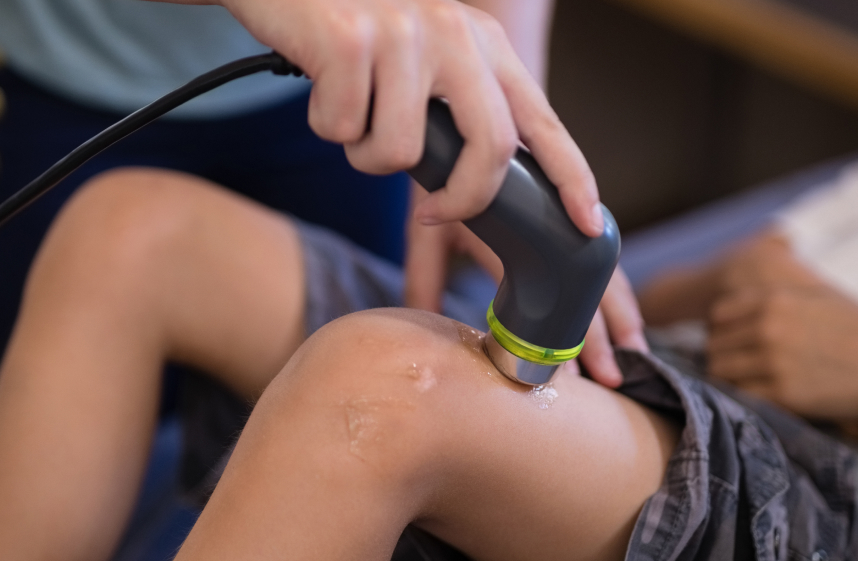
Find a Doctor
Expertise you can trust, Meet our esteemed doctors who bring exceptional knowledge, compassion, and innovation to provide top-notch care for your health and well-being.
Our Hospitals and ClinicsOur Hospitals and Clinics
Rainbow Children's Hospital stands as a testament to the hospital's continual pursuit of excellence and innovation, providing specialized care for women and children.
Request a Call back
Tap to Fill FormRequest a Call back
Blogs
Discover our most recent health articles provided by our reliable experts.
What Are People Saying About Us
Embark on a journey of inspiration and hope with our patient success stories, complemented by informative videos from our dedicated doctors.
Unfortunately, for pediatric rheumatic diseases, there is no cure. However, you can get remission for your kid if you go for early diagnosis as well as aggressive treatment. The aim of the treatment is controlling pain, relieving inflammation, improving the quality of the child's life and hopefully achieving remission. Most treatment plans include physical activities, a combination of medications, eye care, and a healthy diet.
Juvenile Idiopathic Arthritis (JIA)
This is the most common type of arthritis and has six subtypes: polyarthritis, oligoarthritis, juvenile psoriatic arthritis, systemic enthesitis-related, or undifferentiated.
Juvenile Dermato
This is an inflammatory disease causing weakness in the muscles and a skin rash on the knuckles and the eyelids.
Juvenile Lupus
Lupus is an immune system disease which can affect the skin, joints, blood, kidneys, and other body parts. The most common form of lupus is systemic lupus erythematosus (SLE).
Juvenile Scleroderma
Scleroderma means hard skin. This is a condition where skin gets hardened and tightened.
Kawasaki disease
In this condition, the blood vessel gets inflamed leading to heart complications.
Fibromyalgia
This is an arthritis-related condition with chronic pain syndrome. Most common in girls, it can result in aching, stiffness, disrupted sleep, fatigue, and other symptoms. In some cases, this condition can be diagnosed before puberty.
Quick Links
- Best Pediatric Rheumatologists In Hyderabad
- Best Pediatric Rheumatologists In Bangalore
- Best Pediatric Rheumatologists In Delhi
- Best Pediatric Rheumatologists In Chennai
- Best Pediatric Rheumatologists In Vijayawada
- Best Pediatric Rheumatologists In Vizag
- Best Pediatric Rheumatologists In Marathahalli
- Best Pediatric Rheumatologists In Bannerghatta
- Best Pediatric Rheumatologists In Hebbal
- Best Pediatric Rheumatologists In Malviya Nagar
- Best Pediatric Rheumatologists In Currency Nagar
- Top Pediatric Rheumatologists in India
- Pediatric Rheumatologist In India
- Best Pediatric Rheumatologist In India
- Famous Pediatric Rheumatologist In India
- Top Pediatric Rheumatologist In India Near Me
- Famous Pediatric Rheumatologist In India Near Me
- Best Pediatric Rheumatologist In India Near Me
- Pediatric Rheumatologist In India Near Me
- Best Treatment for Autoimmune Diseases in Children,, Hyderabad
- Best Treatment for Rheumatic Fever in Children, Hyderabad
- Best Treatment for Scleroderma in Children, Hyderabad
- Best Treatment for Raynaud Phenomenon in Children, Hyderabad
- Best Treatment for Vasculitis in Children, Hyderabad
- Best Treatment for Juvenile Arthritis in Children, Hyderabad
- Best Treatment for Juvenile Dermatomyositis in Children, Hyderabad
- Best Treatment for Arthritis and Rheumatic Diseases in Children, Hyderabad
- Best Treatment for Iritis Uveitis in Children, Hyderabad
- Best Treatment for Juvenile Ankylosing Spondylitis in Children, Hyderabad
- Best Treatment for Complex Regional Pain Syndrome in Children, Hyderabad
- Best Treatment for Autoimmune Diseases in Children, Bengaluru
- Best Treatment for Rheumatic Fever in Children, Bengaluru
- Best Treatment for Scleroderma in Children, Bengaluru
- Best Treatment for Raynaud Phenomenon in Children, Bengaluru
- Best Treatment for Vasculitis in Children, Bengaluru
- Best Treatment for Juvenile Arthritis in Children, Bengaluru
- Best Treatment for Juvenile Dermatomyositis in Children, Bengaluru
- Best Treatment for Arthritis and Rheumatic Diseases in Children, Bengaluru
- Best Treatment for Iritis Uveitis in Children, Bengaluru
- Best Treatment for Juvenile Ankylosing Spondylitis in Children, Bengaluru
- Best Treatment for Complex Regional Pain Syndrome in Children, Bengaluru
- Best Treatment for Autoimmune Diseases in Children, Delhi
- Best Treatment for Rheumatic Fever in Children, Delhi
- Best Treatment for Scleroderma in Children, Delhi
- Best Treatment for Raynaud Phenomenon in Children, Delhi
- Best Treatment for Vasculitis in Children, Delhi
- Best Treatment for Juvenile Arthritis in Children, Delhi
- Best Treatment for Juvenile Dermatomyositis in Children, Delhi
- Arthritis and Rheumatic Diseases in Children, Delhi
- Iritis Uveitis in Children, Delhi
- Juvenile Ankylosing Spondylitis in Children, Delhi
- Complex Regional Pain Syndrome in Children, Delhi
- Autoimmune Diseases in Children, Chennai
- Rheumatic Fever in Children, Chennai
- Scleroderma in Children, Chennai
- Raynaud Phenomenon in Children, Chennai
- Vasculitis in Children, Chennai
- Juvenile Arthritis in Children, Chennai
- Juvenile Dermatomyositis in Children, Chennai
- Best Treatment for Arthritis and Rheumatic Diseases in Children, Chennai
- Best Treatment for Iritis Uveitis in Children, Chennai
- Best Treatment for Juvenile Ankylosing Spondylitis in Children, Chennai
- Best Treatment for Complex Regional Pain Syndrome in Children, Chennai
- Best Treatment for Autoimmune Diseases in Children, Vijayawada
- Best Treatment for Rheumatic Fever in Children, Vijayawada
- Best Treatment for Scleroderma in Children, Vijayawada
- Best Treatment for Raynaud Phenomenon in Children, Vijayawada
- Best Treatment for Vasculitis in Children, Vijayawada
- Best Treatment for Juvenile Arthritis in Children, Vijayawada
- Best Treatment for Juvenile Dermatomyositis in Children, Vijayawada
- Best Treatment for Arthritis and Rheumatic Diseases in Children, Vijayawada
- Best Treatment for Iritis Uveitis in Children, Vijayawada
- Best Treatment for Juvenile Ankylosing Spondylitis in Children, Vijayawada
- Best Treatment for Complex Regional Pain Syndrome in Children, Vijayawada
- Best Treatment For Autoimmune Diseases in Children, Vizag
- Best Treatment For Rheumatic Fever in Children, Vizag
- Best Treatment For Scleroderma in Children, Vizag
- Best Treatment For Raynaud Phenomenon in Children, Vizag
- Best Treatment For Vasculitis in Children, Vizag
- Best Treatment For Juvenile Arthritis in Children, Vizag
- Best Pediatric Rheumatologist in Sarjapur Road, Bengaluru
- Best Pediatric Rheumatologist in Himayatnagar, Hyderabad
- Best Pediatric Rheumatologist in Anna Nagar, Chennai
- Best Pediatric Rheumatologist in Anna Nagar, Chennai - Rainbow Children's Hospital


